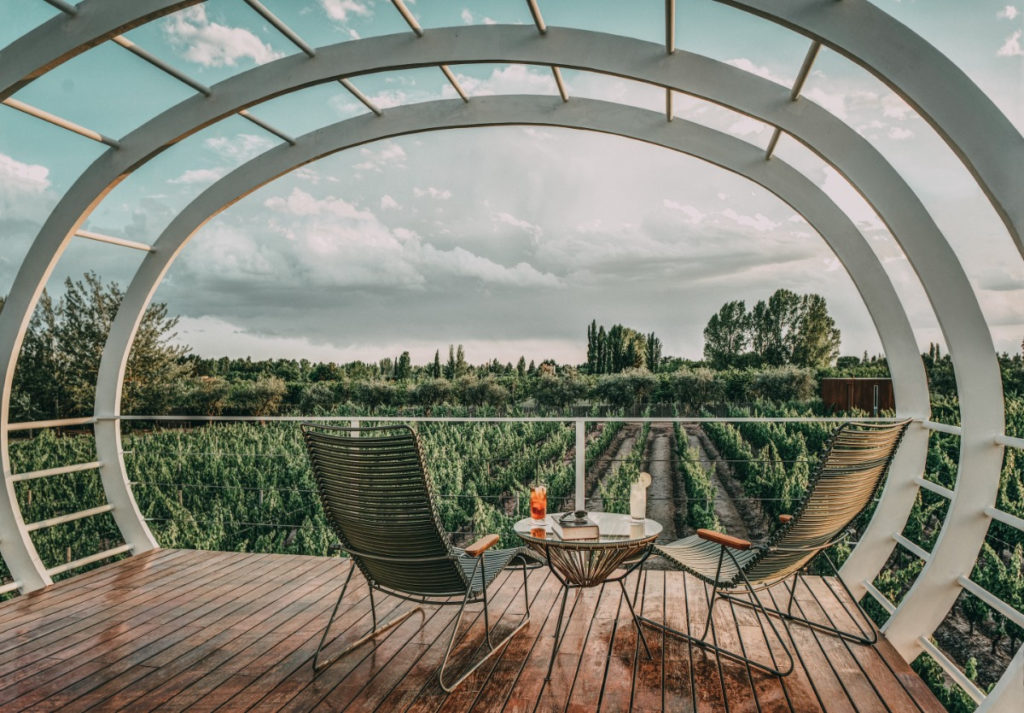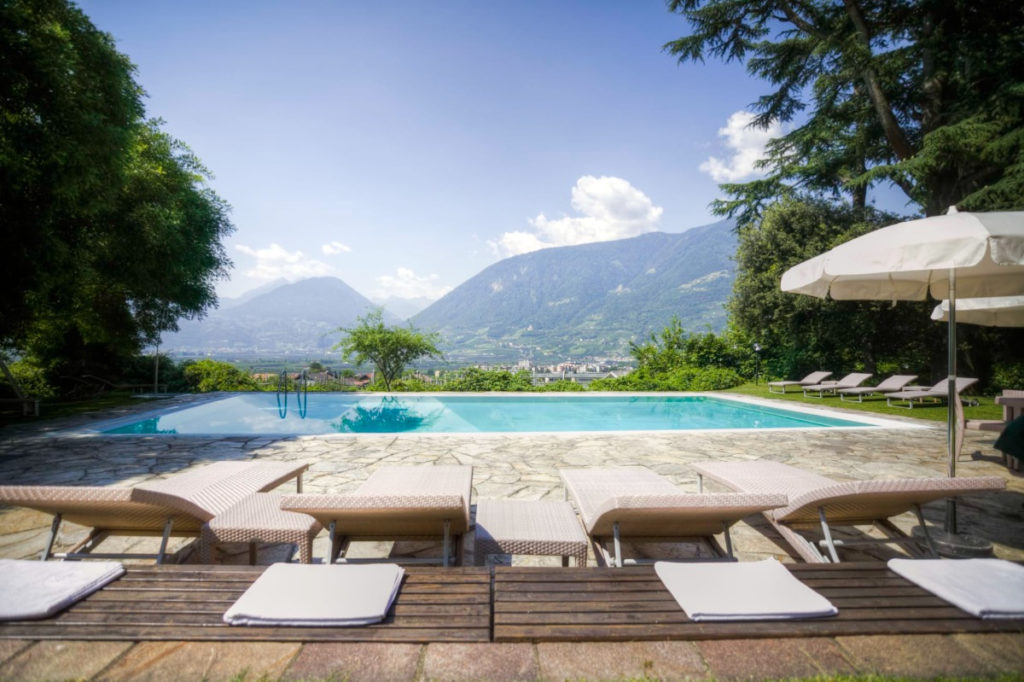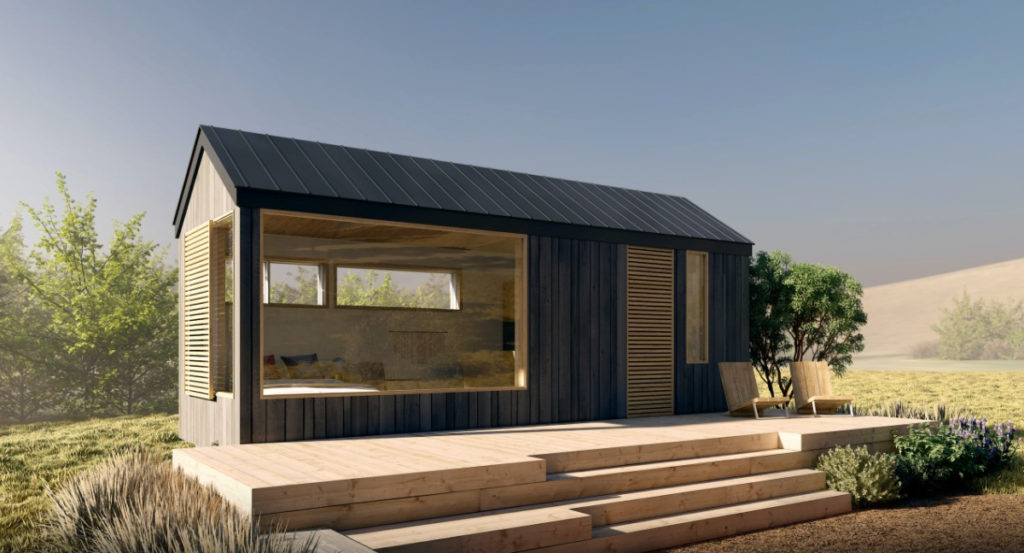Sincerely, BLLA
Wellness & Sustainability in the Luxury Travel Domain
Part 7 in a series of 8 overviews At the 2021 Boutique Lifestyle Leadership Conference, leaders in the industry focused on developing deep insig...
Sincerely, BLLA
Part 7 in a series of 8 overviews At the 2021 Boutique Lifestyle Leadership Conference, leaders in the industry focused on developing deep insig...
At the 2021 Boutique Lifestyle Leadership Conference, leaders in the industry focused on developing deep insight into the complexity of challenging topics, while also remaining on the tangible ground, offering modern solutions to current problems. A wide diversity of voices gave real-world examples of practicing modern sustainability and incorporating wellness in new projects. The BLLA conference effectively answered the question, “how do wellness and sustainability relate to one another in the tourist industry, and how can we incorporate these elements into our design?” With speakers and panelists from all over the globe, including Bali, Ecuador, Chicago, London, Cape Town, India, Argentina, etc., it is clear wellness and sustainability will be common themes across the board in upcoming tourism and travel.
The conference kicked off its 12th anniversary with the first talk of the day: Wellness: How to Create an Awakening Experience, focusing on how wellness is directly linked to elements of design. “The space that surrounds us can cause high levels of stress, or take us to a sense of wellbeing,” Romina Nicolino, the Director of Spa and Wellness at AKEN Hotels & Resorts said. When addressing how people are affected by the surrounding spaces, she added; “we try to combine our philosophy of wellness with the architecture, this is the key in every space of the spa.”

Romina was not alone in the sentiment that wellbeing is all in the subtleties. Monica Cuervo, the Senior Vice President and Regional Director, North & South America at WATG, spoke to the idea that hotels can curate the wellness of guests by considering all the small details of the experience; from the moment they arrive at their destination, to the check-out process. She added, “I think it has to do with all of the senses, … each of the five senses must be touched,” and went on to explain; “so many aspects of our stay at a hotel have to do with all of those little details.”
In the same conversation, Master Surendran offered a clear definition of wellness. We all could use a reminder, as this buzzword makes its way into bubble bath marketing. Surendran, the accredited Feng Shui Master, Vastu Consultant, and Bio Energetician added that “WHUS defines wellness as the total process of having physical, mental, and social wellbeing. You are physically fit, mentally fit, and the environment is supporting you to bring out the best in you. And then, you can contribute towards society.” With this definition in mind, we can more clearly understand how elements of design, discussed by associates and suppliers for the span of the conference, are all contingent on the focus of visitors’ wellbeing in a practical way.
During the conference, most of the conversations regarding design and wellbeing situated themselves within elements of nature, which seamlessly led to the theme of sustainability. By noticing how the environment can effortlessly bring wellness to guests, boutique lifestyle leaders and designers are emphasizing awareness of sustainability and environmental design. Again, Master Surendran laid a foundation for this discussion by emphasizing the importance of connecting to nature and the five elements inserting, “water, wood, fire, earth, metal, how do we balance the elements,” he emphasized that, “everything has to be positioned at the right place; [the elements] have a strong connection to the human body.” Practical examples of this included the color and placement of lighting, the chandeliers, the way plants are incorporated into the spaces to create wellness-focused environments with intentional planning.
Other panelists confirmed the idea that curating a space with natural elements is key. During, The Power of the Sense of Sight, Tony Spata, Principal at Spata Global Design Group, and Lori Christopherson, Hospitality Account Sales Director – North America at Lutron Electronics, spoke to how the lighting, texture, and color of spaces directly contribute to establishing the emotional state of visitors. In knowing this, designers can incorporate intentional lighting designs into their spaces. Imitating the natural circadian rhythm to allow guests to fall asleep and wake up easier or allowing guests to control lighting based on individual needs were a few examples of this idea.
During International Boutique Hotels on Wellness, speakers Regina Connell, Founder of Collective Work, and Hannes Illmer, Co-owner of Villa Eden, discussed the value of mindful practices and holistic experiences within luxury hospitality. Speaking to the scale of wellness, Illmer stated, “we do not have any hotels here [in Europe] without a wellness situation,” and later brings the outdoors into his discussion adding, “what is very useful… nature is a wonderful solution for mental wellness and keeping even older guests awake and ‘on.’ We are really lucky because we are living in nature, we are living in the mountains and we are using that.”

Kent Lindvall, in International Hotels on Genuine Sustainability, emphasizes the value of using one’s surroundings in designing a sustainable hotel. Lindvall, the Founder and CEO of the Treehotel in Sweden, is clearly passionate about sustainable design in luxury spaces. The Treehotel went viral due to its unique design, and while building the sensational property, the team did not disturb the living trees in the area, instead opting to build the resort directly in harmony with the existing flora.
The crossover between luxury and sustainability was also seen in THE WELL’s new wooden hot tub treatment, an idea that elicited excitement from the audience and colleagues. By building a fire-heated tub right into a local river, THE WELL is an example of the way hospitality can offer guests ultra-luxury experiences while maintaining a focus on sustainable design. Using resources sourced from said river, the staff perform treatments on sight, giving guests a completely immersive, elevated experience. Kane Sarhan, Co-Founder and Chief Creative Officer of THE WELL, also proudly added that this feature offers no environmental footprint. In the same conversation, titled Wellness Trends, the Crazy and the Cool, Sam Cooper, Director of Wellness Development at Canyon Ranch, added “we’re seeing a big shift toward spiritual wellbeing, … and the other big shift we’re seeing is anything nature, anything having to do with the outdoors. Nature-inspired treatments, walks in the woods, healing, and grounding, that’s what our guests are gravitating towards.”
It’s clear to see that, on a large scale, guests and creators of all backgrounds are moving toward wellness and nature. So, how does this translate directly into sustainability? The session: Sustainability. Period. asked panelists to speak on ways in which the luxury hospitality industry can have a positive impact on popular environmental issues. David Rust, CEO of Sagra, wanted to create a hotel that focused on distributing finances to the local economy while also creating an economy based on the preservation of local wildlife. To do this, Rust designed experiences around agrotourism as a unique way of bringing slow-paced tourism into the way guests travel. Rust spoke about how to use an experience-based approach to educate the population on sustainability in a positive and guilt-free way. He also discussed how sustainability relates to wellness by eating local foods and providing natural spaces to unwind. A big takeaway from this discussion was how minor details have the potential to create movements of social change.

An event titled: How Hotels Can Be a Part of Doing Good found panelists taking a deeper dive into practical solutions and encouraged listeners to consider how the hotel industry can make a direct impact on positive change. Jake Haupert, Co-Founder and CEO of Transformational Travel Council, began the conversation by stating, “it is time for hotels to develop a vision that goes beyond just making money, spa treatments… and encouraging more mindful use of towels and address the bigger challenges that are facing our industry, our planet, and our humanity.”
Understanding that “traveling is a tool for wellness,” the leaders in this room were quick to mention the value of sustainability, while still acknowledging the reality of prioritizing the success of the brand. Haupert brought consumer trends into the conversation by recognizing, “an exciting report from Design Hotels shows [that] travelers do not see themselves as consumers anymore, they seek to be contributing and they want their trips to have purpose.” By seeing the potential to “do good,” or interact with travel ethically, sustainability within the tourism industry is able to make significant changes without sacrificing the luxurious element we all crave. To frame wellness and sustainability not as an option, but as a driving force leading the hospitality industry forward, hotel directors, designers, and employees will make ethical choices effortlessly.
Shaping Unique Experiences and Future Trends in Hospitality In an evolving travel landscape, boutique hotels have emerged as significant players, r...
We are thrilled to unveil the theme for the 2024 Boutique Hotel Owners Conference by BLLA: "The Mycelium Network." This year, we dived into the profo...